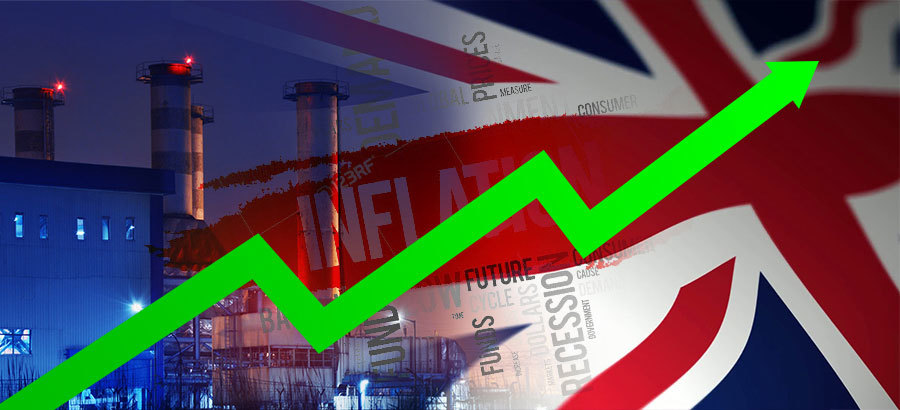
Published: October 1st, 2021
Month-ahead prices for UK wholesale gas surged to fresh highs, a testament to the burgeoning energy crisis as Britain edges into Autumn.
Analysts say the sudden spikes seen this week result from a bidding war between Asian and European energy traders desperate to procure seaborne gas.
CBA’s energy commodities unit published an investor note this week saying LNG spot prices reflected strong demand from both Europe and China, plus worries that an energy shortage in China this winter ‘will compel Sinopec, one of the country’s biggest LNG importers, to bid up aggressively against European competitors’.
‘Chinese and other North Asian importers want to avoid the experience of winter 2020, when colder than expected weather and low LNG stockpiles resulted pushed LNG spot up unexpectedly’.
The UK face an even worse situation with the onset of cooler weather as its gas storage facilities are already all but empty. The stored capacity in other major European economies makes the UK’s post-Brexit energy supply problems look particularly acute.
As of Thursday, the UK had only enough gas to meet demand for four to five winter days, less than two per cent of Europe’s current gas stockpile.
The Netherlands has more than nine times Britain’s capacity in storage, while Germany's stockpile is 16 times the size of the UK’s.
CBA says European gas storage levels have been stable at roughly three-quarters of capacity. That’s under the five year average of 87 per cent typically held in reserve at this time of year, reflecting cuts to Norway’s gas production and increased demand for gas‑powered energy production.
Around the globe, economies have been racing to switch their gas supplies back on as the return from COVID lockdowns caused disjuncture between supply chains and commodity markets.
UK businesses and consumers are now looking at a jump in energy prices in mid-Winter. The Ofgem energy regulator is expected to raise its price cap in February, fuelling concerns that high inflation will continue for the foreseeable future.
According to CBA, the potential for outages at Europe’s nuclear plants and the surprise decommissioning of the UK’s 2 Dungeness atomic reactors in June have increased demand for gas-powered electricity generation. There has also been a lull in the UK’s wind-powered generation.
Rising energy prices will spur additional inflation on top of the levels already forecast by the Bank of England, which is projecting it to peak at four per cent in December. Threadneedle Street has indicated that these already high levels may now be too conservative.
Nomura’s commodities trading desk in London issued a market commentary on Thursday that pointed to ‘more energy price shocks’ keeping inflation above the bank’s two per cent target rate for a more extended period.
‘A pattern is developing, and we believe the BoE may start to perceive recent trends in energy pricing as destructive to medium-term price stability.’
Prices for crude oil are also on the rise, with Brent crude touching just below the USD 80 per barrel level, having risen for six days straight to reach the highest prices seen since November 2018.
Barclay’s energy analyst Parminder Singh told Bloomberg that ‘a persistent supply deficit is creating a tighter oil market. On current trends, OECD inventories could finish the year at the lowest demand levels seen in decades’.
He added that Barclays is still broadly upbeat on oil prices and have raised their 2022 price forecasts by USD 9 per barrel.
Barclay’s estimates that total OECD oil stockpiles, measured on a days-of-total-demand basis, were at 45.8 per cent capacity in the second quarter of this year versus 57.3 per cent in Q2 2020.
Oil reserves will almost certainly finish the year at the lowest levels experienced in decades.
Nomura believes rising UK petrol prices may add another 0.2pp to headline inflation before the end of December, pushing it even further above the previous peak forecast of 4.5 per cent in mid to late November.
Another factor aggravating natural gas wholesale prices in the UK was a force majeure event at the IFA1 interconnector site in Sellindge near Ashford in Kent. A raging fire disabled the country’s primary subsea power connector cable between the UK and France. The disruption reduced electricity imports and raised concerns that more significant price pressures were building.
The blaze arrived at the very worst time, amid tightening gas markets and uncooperative weather creating a lack of wind at the country’s massive ocean wind farms. The trifecta prodded UK and European day-ahead power prices to heights not seen since 2008 on Tuesday, reaching £530 per megawatt-hour (MWh).
Energy commodity traders rapidly bid up UK gas prices, expecting that The National Grid state energy operator will need to engage more gas generation to compensate for lost electricity supply.
Meanwhile, Orsted, the world’s largest offshore wind farm developer, announced "extraordinarily bad" weather conditions in August, the worst of the 89 quarters on record. ‘It has been an abysmal quarter for wind generation,' the company's website said.
CEO Mads Napper told Bloomberg NEF that the situation ‘is dire, like being a farmer when it doesn’t rain.’
While these market issues are of energy inflation are local in nature, they’re happening against a broader backdrop of rising European and global energy commodity prices. Despite Brexit-borne hopes that the UK could go it alone in world trade, it's discovering that global gas markets are extremely interconnected.
In a market analysis published last week, Pantheon Economics in London said, 'The UK is still a net importer of fuels, carrying just a small surplus in oil trade alongside a somewhat larger deficit in natural gas. That reliance on imports has increased significantly this year.’